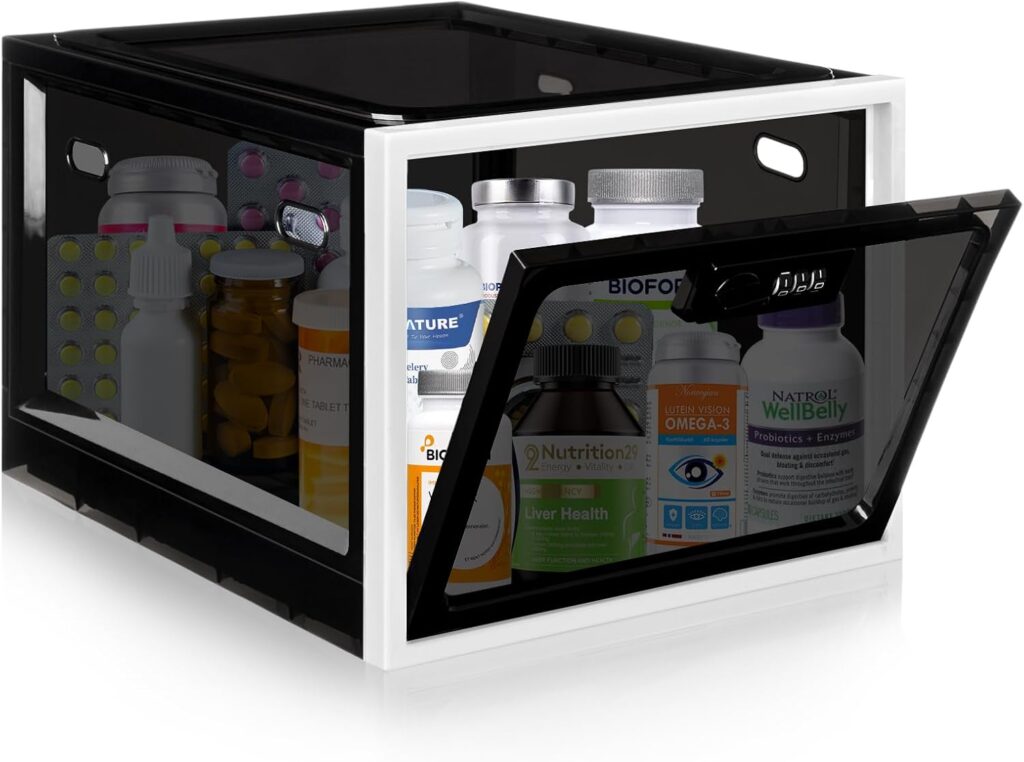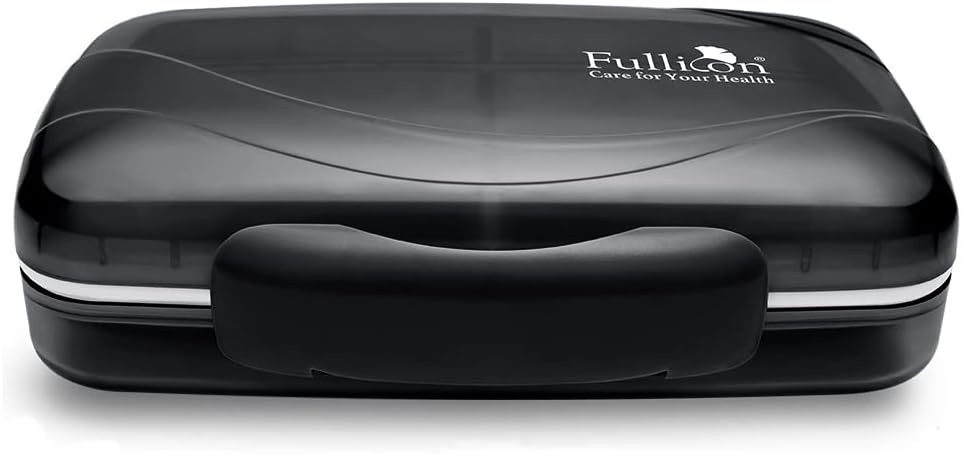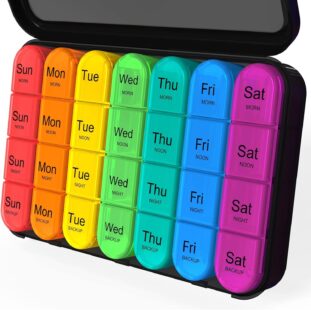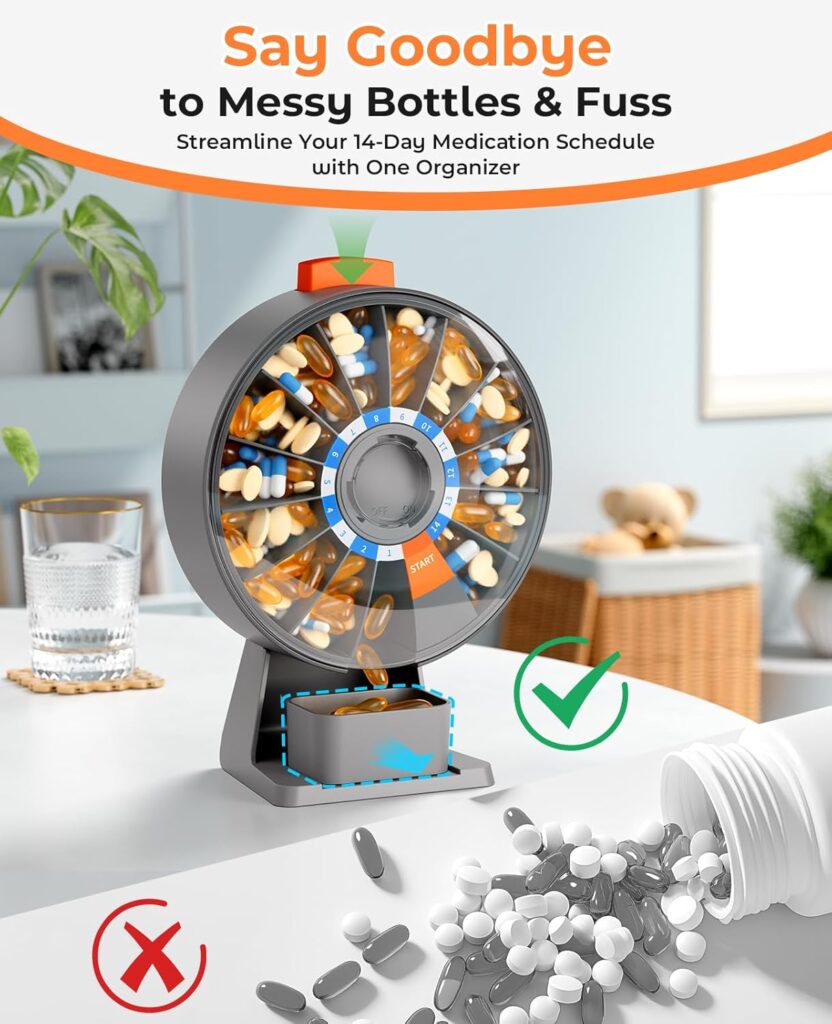Discover effective medication management for older adults that actually works. Learn real-life tips and tools to simplify prescriptions, avoid mistakes, and stay on track.
Let’s be real—medication management for older adults isn’t exactly a walk in the park. Between juggling a half-dozen pill bottles, deciphering those tiny prescription labels, and remembering if it was one pill before breakfast or two after dinner—it’s easy to feel overwhelmed.
I’ve been in the thick of it with my aging dad, and I can honestly tell you that the learning curve is steep. But here’s the thing: it can be simple.
After a few missteps (like that one time we mixed up his cholesterol meds with his blood pressure pills—oops), we figured out a system that’s low-stress, reliable, and actually kind of effortless.
So if you’re looking to skip the chaos and get straight to the stuff that works, this guide is for you.
Why Medication Management for Older Adults Is So Important
Whether it’s polypharmacy (multiple prescriptions) in elderly patients, chronic health issues, or just plain forgetfulness, staying on top of meds is essential.
The risks of skipping doses or doubling up are no joke—think hospital visits, worsened symptoms, or dangerous drug side effects in older adults.
And let’s not forget how common it is for seniors to deal with cognitive decline and medications that only complicate the picture.
A consistent schedule can prevent missed doses and reduce the potential for negative interactions. Ensuring the correct medications are taken at the right times is a goal that many caregivers and families work towards.
Managing multiple medications is not only about having an organized pill box, but also about staying informed about each medication’s purpose and potential side effects.
Understanding the reasons behind each prescription can help older adults feel more confident in their treatment routines and allow them to recognize any changes in how they feel. Ultimately this can also help in conversations with your doctor/healthcare provider.
Bottom line? A solid system for medication management isn’t just nice to have. It’s a lifeline to address everyday strategies, useful tools, and common challenges that come with keeping track of various prescriptions and over-the-counter medications. Perfect for times when you travel too!
5 Common Challenges in Managing Medications for Seniors
Too Many Pills, Too Little Clarity
Ever heard of polypharmacy? It’s when a person is on five or more medications at once.
These complicated schedules are totally common for seniors—and very confusing. Without a good system, it’s easy to miss a dose or take the wrong pill.
Side Effects and Drug Interactions
The older you get, the more sensitive your bodies becomes to meds. And some combinations can cause more harm than good. That’s why senior medication review with a doctor or pharmacist is a must.
Some medications can cause dizziness or confusion, which in turn affects how consistently they are taken.
It becomes important that you monitor how each medication affects you or your elderly loved one. Report any issues to a healthcare provider immediately.
Often, older adults may be prescribed multiple medications that can interact in ways that lessen their effectiveness or cause adverse reactions. A review of your medication list with your doctor helps address these issues.
Forgetting to Take Meds
One of the most frequent challenges is forgetfulness. Even with reminders set, there might be times when an alarm might not be enough to trigger the right action. In such cases, involving a friend or caregiver can provide that extra level of oversight.
It’s not just memory loss – forgetfulness and cognitive decline. Sometimes it’s the daily shuffle—doctor visits, family events, or even just losing track of time. That’s where a little tech and structure go a long way.
Physical limitations
As you age, physical limitations such as poor vision, arthritis, osteoporosis, etc. are more common. Poor vision can result in taking one instead of two pills or even more of a single prescription.
Arthritis, on the other hand, may make if more difficult to open bottles without help. If no-one is around, then, it is easy to decide to skip that dose!
Cost
Cost is another significant barrier. Some medications can be very expensive, and when multiple drugs are involved, the cumulative cost can become overwhelming.
Exploring generic alternatives or asking about discount programs at local pharmacies might offer some relief. These options are worth considering if you find yourself struggling with medication expenses
7 Strategies and Tips to Set Up a Safe and Effortless Medication Routine at Home
Several tools and resources are available to help simplify medication management for older adults. These tools range from simple organizers to sophisticated digital solutions that cover a wide spectrum of health management.
Basic tools include a weekly pill organizer, a tried-and-true method that many people depend on. For those who are comfortable with technology, smartphone applications that send reminders and track doses can be extremely helpful.

Many of these apps allow users to record additional details such as dosage amounts, frequency, and special instructions like taking a dose with food.
Keep an Up-to-Date Medication List
Start by creating your medication list including prescriptions, over-the-counter drugs, and supplements. It should include dosage, purpose, and instructions for each medication.
Print 2 copies. Keep one in your wallet and another in the medicine cabinet/ top of the fridge. More importantly, don’t just “print and forget”! Regulary update this list each month to see if anything has changed.
It is wise for older adults and caregivers to review this list together with a healthcare provider. This initial review can identify any duplicate medications or drugs that might have harmful interactions.
Ensure that Labeling is Clear
Keeping medication labels visible and organized assists in avoiding mix-ups. A well-labeled system provides clarity on the purpose and timing of each medication. It is a good idea to have a medicine box to keep your medications. Check out the GEMAVOXLED Medicine Lock Box – one of several options on Amazon..
Use a Pill Organizer That Makes Sense – For You!
We started with one of those basic organizers from the dollar store, but it didn’t cut it. Upgrading to a color-coded pill organizer for seniors that sorts meds by time of day? Game-changer.
Pill organizers for seniors aren’t just plastic boxes—they’re sanity savers. Some even come with alarms. Check out some popularly rated ones in this article:
- MEDca STORE Stackable Daily Pill Organizer – 2 Pack, 4 Times a Day Weekly Medication Reminder with 7 Individual Stacking Cases
- AUVON Sleek Weekly Pill Organizer 2 Times a Day with Double Moisture-Proof Design
- SAGELY SMART Weekly Pill Organizer – Sleek AM/PM Pill Box with 7 Day Travel Containers
Create a Daily or Weekly Written Schedule or Chart
Getting the timing right is one of the trickier parts of managing multiple medications. Some medications need to be taken on an empty stomach while others require food to aid absorption.
It is helpful to have a clear written schedule that indicates not only the time of administration but also any specific instructions related to meals or other activities.
Too often, simple timing errors can lead to reduced effectiveness or side effects that could have been avoided with proper planning.
A big fridge magnet chart with meds listed by day and time made all the difference in our house. It’s perfect for caregivers and visiting nurses, too.
Set Phone Alarms or Use Reminder Apps
Don’t rely on memory—set it and forget it. Apps like Medisafe and CareZone are excellent for medication reminders for elderly loved ones.
And if your senior isn’t into smartphones? No problem. Use a simple alarm clock or enlist an Alexa to do the reminding.
Store Meds Properly for Effective Medication Management for Older Adults
Always store meds away from heat – heaters, heat vents, kitchen counters near the stove. Make sure that all meds are out of reach of pets and inquisitive kids visiting especially if you live alone. There are safe options you can uses such as the
Pharmacy Consultation Reviews
Many local pharmacies offer consultations or free services to help sort out your medications and review potential drug interactions. Community health programs often include educational sessions on medication management, giving both seniors and caregivers practical tips and best practices.
Tech Tools That Actually Help with Medication Management for Older Adults
1. Pill Dispensers
There are some pretty slick gadgets out there now. We tried a smart dispenser that only unlocks the right meds at the right time—and it even buzzes when it’s ready. Check out the DAVIKY Large Pill 14 Days Organizer Dispenser
Pair that with a caregiver app, and you’ve got a near foolproof system.
2. Phone Alarms
Use your phone to set up alarms to remind you of each time you need to take your medication and supplements each day. Just don’t forget to do this every day!
3. Mobile Apps for Tracking and Alerts
Apps aren’t just for kids and cat videos. The right medication tracking apps for seniors can log every dose, send alerts, and even share updates with caregivers.
Several smartphone apps and digital devices are designed to help with medication reminders, tracking medication history, and even alerting caregivers if doses are missed
4. Voice-Activated Reminders
Use voice assistants such as Alexa and Siri as reminders. “Alexa, remind me to take my heart meds at 8 a.m.” That one sentence can save a lot of hassle. Pair it with visual cues, like placing the pill organizer next to the coffee pot.
Caregiver Tips Without the Burnout in Medication Management for Older Adults
If you’re a caregiver, you’re basically the quarterback of the med squad. It’s your job to keep the playbook tight. A caregiver is not only individuals you employ to take care of an older or elderly adult. It could be a family member.
- Set reminders for yourself too
- Use shared tools like CareZone for caregiver medication tools.
- Double-check all prescriptions when they’re filled.
- Know what each medication is for and keep emergency information on hand.
- Make it a habit to do a weekly med check and do celebrate whenever you “nail” the schedule each week with a high-five! Encouragement goes a long way.
And don’t be afraid to ask questions. Even if the pharmacy line is 10 people deep
Working with Healthcare Providers
1. Schedule Regular Med Reviews
Ask your provider for a senior medication review every 6-12 months—or sooner if anything changes.
2. Elderly Adults Should Take Someone Along to Appointments
If you are getting up there in years, it is always a good suggestion to bring someone along to your appointments. Sometimes instructions given in these appointments can be overwhelming.
Having someone there to help take notes and ask some key questions for you is a a safer option than you trying to remember it all when you get home.
3. Ask about Alternatives to Lower Risks of Pill Mis-use
Don’t be shy about asking your doctor or healthcare provider for alternative prescriptions to reduce the number of pills you need to take. When possible, taking one pill is always better than two pills for a prescription!
4. Bring a Medication List to Every Appointment
That list you made earlier? Bring it with you. Doctors can’t help if they don’t know what you’re taking.
5. Watch for Duplicate or Unnecessary Meds
Sometimes different doctors prescribe similar meds without realizing it. Keep an eye out for duplicates or outdated prescriptions.
Keeping It Simple and Stress-Free
Simplifying medication routines is all about making life easier—not adding stress.
- Try a one-day-at-a-time approach with medication routines for elderly family members.
- Keep a go-bag with extra meds in case of emergency.
- Create backup plans for when a caregiver can’t make it.
Effortless Medication Management for Older Adults That Actually Works
You don’t need a medical degree to master medication management for older adults. With the right tools, routines, and teamwork, you can go from chaos to calm without losing your mind.
Medication management is a continuous process that benefits greatly from a combination of practical tools, digital innovations, and personalized care.
Start small, stay consistent, and lean on your support system. Because honestly? It doesn’t have to be hard. Get started today! Check out some of the tools in this article.
Related Articles
- Incorrect Time Gap Between Taking Medicines: 4 Hidden Risks
- 12 Effective Ways to Treat Chronic Pain Without Medication
FAQs for Medication Management for Older Adults
What is the best way to manage multiple medications for seniors?
Use a weekly pill organizer, set daily reminders, and regularly review meds with a healthcare provider to avoid complications.
Are there apps that help seniors remember to take medication?
Yes! Apps like Medisafe and CareZone send reminders, track doses, and even notify caregivers.
How can caregivers help with medication management for older adults?
Caregivers can organize medications, monitor side effects, and communicate with healthcare providers to ensure safe use.
What should I include in a medication list for seniors?
Medication name, dosage, timing, purpose, and any notes about side effects or special instructions.
How do I get started organizing my medications?
Begin by listing all your current medications and their schedules. Review this list with a healthcare provider to ensure its accuracy. Then, choose a calendar or reminder system and consider using a pill organizer to keep track of daily doses.
What should I do if I miss a dose?
If a dose is missed, check the instructions provided with your medication or consult your doctor. Many medications have specific guidelines for missed doses to ensure your safety and continued treatment effectiveness.
References
Compassionate Care Home Health (2021)Tips for Safe Medication Management for Seniors https://www.compassionatecaremi.com/medication-management-for-seniors/




